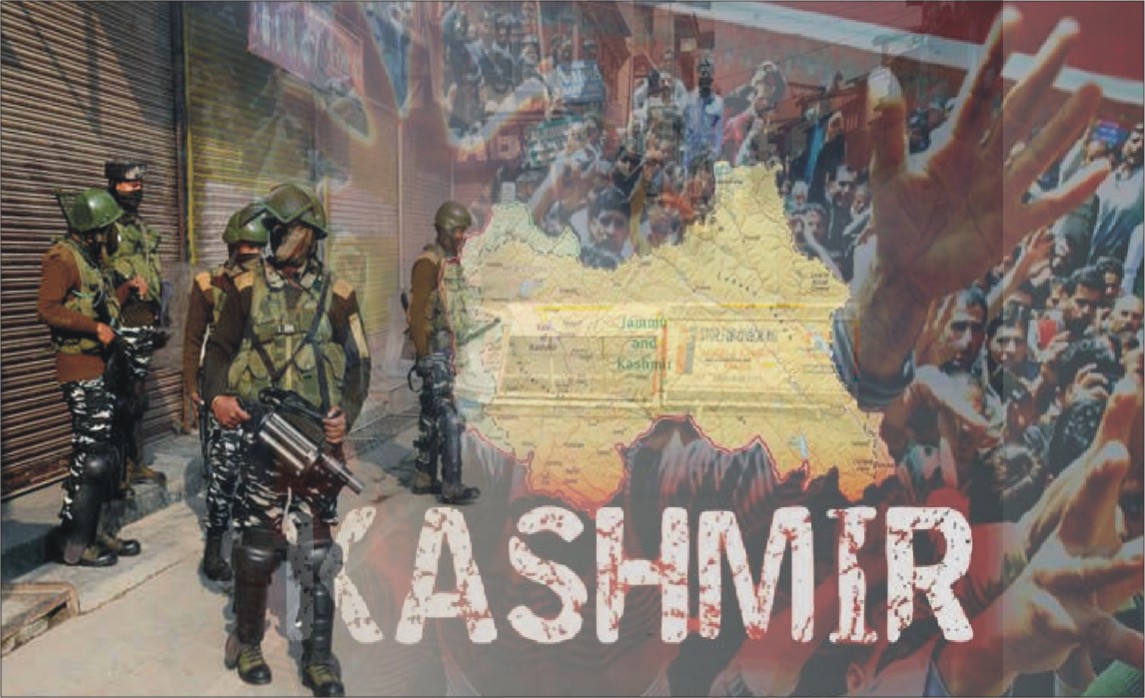
 The Kashmir dispute is not only a significant geopolitical issue but also a substantial barrier to economic collaboration in South Asia. This ongoing conflict between India and Pakistan, which has persisted since 1947, has far-reaching implications for the region’s economic potential and stability.
The Kashmir dispute is not only a significant geopolitical issue but also a substantial barrier to economic collaboration in South Asia. This ongoing conflict between India and Pakistan, which has persisted since 1947, has far-reaching implications for the region’s economic potential and stability.
The relationship between India and Pakistan is central to the economic dynamics of South Asia. In this region, the collaboration of two India and Pakistan could drive significant economic growth. However, the Kashmir dispute has kept them in a state of near-permanent hostility, leading to several economic consequences. India and Pakistan have repeatedly imposed trade restrictions on each other. This limits the flow of goods, services, and investments, thereby stifling economic growth on both sides, and others in neighbour. The potential for cross-border trade remains largely untapped due to frequent border skirmishes, diplomatic stand-offs, and policy barriers rooted in mistrust over Kashmir.
The South Asian Association for Regional Cooperation (SAARC) was established to promote regional integration and economic cooperation among its member states. However, the Kashmir conflict has been a significant impediment to its success. SAARC’s economic potential has been hampered by the ongoing rivalry between India and Pakistan. Key initiatives, such as the SAARC Free Trade Agreement (SAFTA) and regional connectivity projects, often face delays or are shelved altogether because of political tensions stemming from the Kashmir issue. SAARC’s effectiveness is undermined by its inability to mediate or resolve conflicts like the Kashmir dispute. The organization’s charter emphasizes consensus, which becomes almost impossible when India and Pakistan are at odds, leading to a paralysis in decision-making.
Cross-border trade, especially across the Line of Control (LoC) in Kashmir, has the potential to improve local economies and build trust. However, the Kashmir conflict frequently disrupts these economic activities. Trade routes along the LoC were often closed during periods of heightened tensions, leading to significant economic losses for local traders and communities. The uncertainty surrounding the conflict deters investment and hinders the development of a stable economic environment in these regions. Due to official trade restrictions, a significant amount of trade occurs informally or through smuggling, which undermines legal economies and results in lost revenue for both countries.
The Kashmir dispute demands substantial resources from both India and Pakistan, which could otherwise be directed towards economic development. Both countries allocate a significant portion of their budgets to defense spending due to the ongoing conflict of Kashmir. These funds could have been used for infrastructure, education, healthcare, and other sectors that directly contribute to economic growth.
Periodic escalations over Kashmir lead to economic sanctions, diplomatic fallouts, and the severing of economic ties. For instance, after the Pulwama episode in February 14, 2019, and on February 26, 2019, the Indian Air Force (IAF) conducted airstrikes in Balakot, Pakistan. This operation marked a violation of Pakistan’s airspace and sovereignty, raising serious concerns about the breach of international law. In retaliation, Pakistan Air Force (PAF) carried out airstrikes on February 27, 2019, and downed an Indian aircraft, captured Indian Wing Commander. This military escalation had significant economic repercussions for both countries. Investor confidence was shaken, leading to a dip in economic activity as markets reacted to the heightened risk of conflict. The threat of war in a region with such high stakes led to increased caution among investors, further slowing economic growth and affecting key industries, including tourism and foreign investment. The incident highlighted the fragility of peace in the region and the broader implications for economic stability when such conflicts arise.
The Kashmir dispute contributes to a broader climate of mistrust in South Asia, affecting not only India-Pakistan relations but also the region as a whole. The mistrust between India and Pakistan spills over into broader regional dynamics, making it difficult for South Asian countries to collaborate on large-scale projects, such as energy sharing, regional transportation networks, and collective security measures. Other regional forums like the Bay of Bengal Initiative for Multi-Sectoral Technical and Economic Cooperation (BIMSTEC) also feel the impact of the India-Pakistan rivalry, as it limits the scope of their cooperation. This rivalry often forces other countries in the region to take sides, further complicating regional collaboration.
South Asia has immense economic potential due to its large population, diverse resources, and strategic location. However, the Kashmir dispute limits the region’s ability to harness this potential. Projects that could benefit the entire region, such as transnational energy pipelines or transportation corridors, are either delayed or canceled due to the political instability created by the Kashmir dispute, that affects the overall economic growth of South Asia. The persistent tension between India and Pakistan makes the region less attractive to foreign investors, who view South Asia as a high-risk area because of having two nuclear powers always in tussle.
Pakistan has consistently pursued resolution of bilateral issues with India through dialogue and diplomacy, frequently demonstrating goodwill gestures. For instance, Pakistan’s decision to release Wing Commander Abhinandan, the day after the February 2019 airstrike aimed to de-escalate tensions and foster diplomatic engagement. Despite these efforts, India’s continued rigidity and reluctance have often been a significant obstacle to achieving meaningful progress in resolving disputes
Conclusively, the Kashmir dispute is a significant hurdle to economic collaboration in South Asia. It not only affects India and Pakistan but also undermines regional efforts at economic integration and development. Resolving or managing the conflict more effectively would open the door to immense economic opportunities, benefiting the entire region. However, as long as the dispute remains unresolved, South Asia will continue to struggle with achieving its full economic potential.
Author: Shaikh Abdul Majid
alshaikhmr@gmail.com








